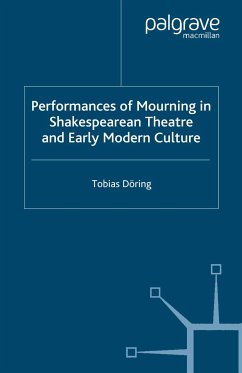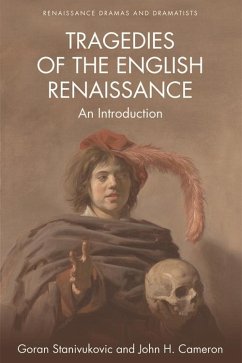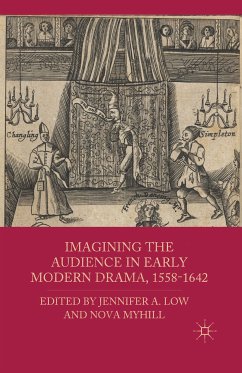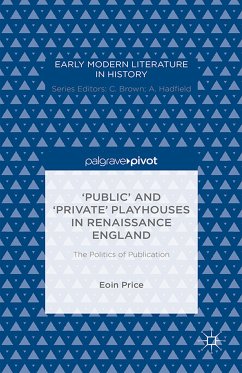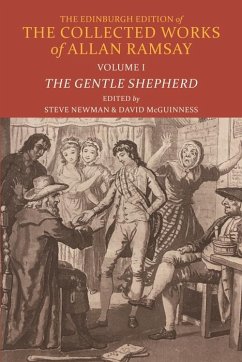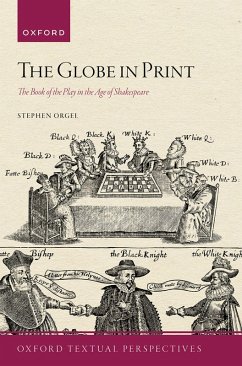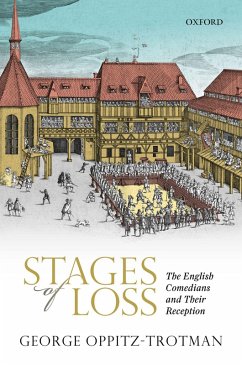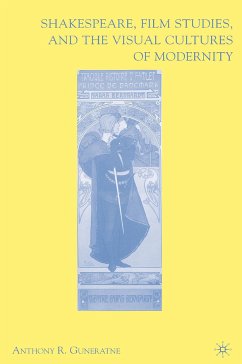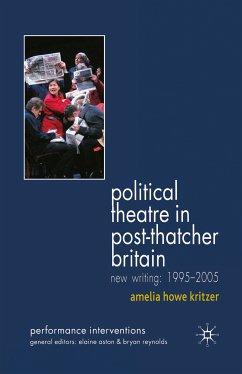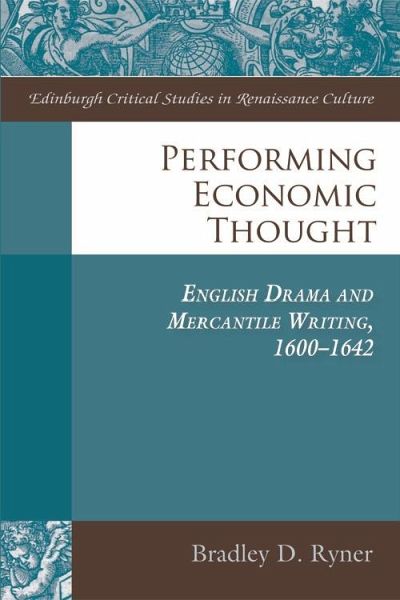
Performing Economic Thought (eBook, PDF)
English Drama and Mercantile Writing 1600-1642

PAYBACK Punkte
0 °P sammeln!
Provides an original account of the relationship between economic thought and early modern dramaPerforming Economic Thought examines representations of economic exchange in English plays and mercantile treatises written between the chartering of the English East India Company in 1600 and the closing of the public playhouses at the outset of the English Civil War in 1642. These were crucial decades during which economic thinkers re-examined how they conceptualised and depicted commerce as a system. Adapting approaches pioneered by scholars working under the expansive rubric of Science Studies, ...
Provides an original account of the relationship between economic thought and early modern dramaPerforming Economic Thought examines representations of economic exchange in English plays and mercantile treatises written between the chartering of the English East India Company in 1600 and the closing of the public playhouses at the outset of the English Civil War in 1642. These were crucial decades during which economic thinkers re-examined how they conceptualised and depicted commerce as a system. Adapting approaches pioneered by scholars working under the expansive rubric of Science Studies, Performing Economic Thought compares the formal features of treatises and plays, giving particular attention to those features unique to the theatrical experience (for example, the presence of props and actors' bodies and the position of the audience relative to the staged action) that allowed economic systems to be represented and conceptualised differently in the playhouse than in the printed treatise. The book argues that the representational techniques available to playwrights facilitated a more insightful exploration of economic systems than those available to economic writers.
Dieser Download kann aus rechtlichen Gründen nur mit Rechnungsadresse in A, B, BG, CY, CZ, D, DK, EW, E, FIN, F, GR, HR, H, IRL, I, LT, L, LR, M, NL, PL, P, R, S, SLO, SK ausgeliefert werden.




